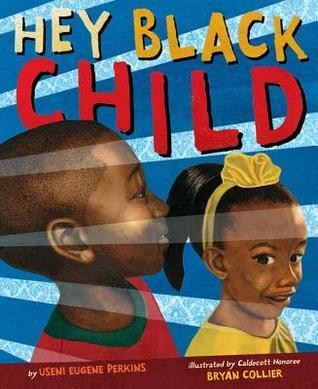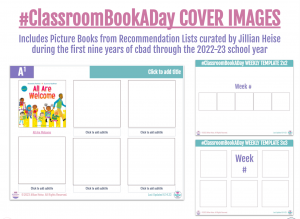Today I was doing a First Chapter Teaser of Jason Reynolds’ GHOST with one of my 4th grade classes in the library. I asked if they remembered that I had shown them a picture of Jason early in the year when I was going to a bookstore event. Because representation matters, and it was important for them to picture who writes this book, and that he’s someone who looks like many of the kids in their class & school look.

One girl (who is White) answered, “No offense. But he is Black and has those things in his hair.” We clarified as a group that she meant dreadlocks which got some of the kids talking more about hair. But her comment stuck with me, and I had to go back to it. I couldn’t just let it go. She started wth “no offense” and then referred to the author being a Black man. But why did she feel the need to start with “no offense” in the first place? Because she’s White? Because she was saying he is Black? To me, this was exactly the kind of comment that needs to be addressed and not just glossed over in the classroom.
In those 30 seconds I was wondering what my Black students might be thinking after that comment, and also flipping through various ways to respond to it in my head and trying to decide which way would be compassionate and inclusive, while still knowing that I might screw it up. I was worried about microaggressions, and trying to figure out if what I was about to say would be one or not for any of my kids. I imagine it’s this moment of fear that too often keeps teachers from encouraging these conversations in their classrooms. But I’ve learned that I can’t shy away from them because my kids live these lives in this society and need to learn how to navigate it. And in those few seconds that I was thinking of all of that (sidenote: This might also illustrate why teachers end up with decision fatigue by the end of a school day), I decided to just start with a question.
So I asked the student why she started her statement with no offense. And she shared that since she was saying Jason is Black, she didn’t want people to think she was being racist. I had to sit with that for a moment…my instinct was to want to turn to the Black kids in the class and ask if they felt it would be racist for someone to say that. Knowing that would not be the way to handle it, as I know it shouldn’t be the responsibility of the PoC in the room to educate the white people, I simply scanned the whole class and asked what others thought: Is it racist to say he is Black? Does she need to start with no offense? One of the boys (who is Black) called out from the side “She’s just saying that’s what color he is; not judging him for it. So it’s not racist.” Leave it to the kids to simplify it and lay it out there for us all.
I reminded them of when I shared Hey, Black Child early in the year for our read aloud, and asked whether using the word Black seemed racist. In a book that is celebrating Black children, written and illustrated by two Black men, they said it didn’t. We followed up with a brief discussion about using Black vs. African-American and not all Black people being of African ancestry.
I’m not sure if I handled it right, but I hope it made a positive impact on the classroom community. The kids were respectful, honest, and hopefully gained some new perspective. It was one of those classroom moments when kids surprise you, challenge you, make you think, worry you a little, and you hope you handled it well enough to help kids be better humans…without causing lasting damage. It may have made me uncomfortable or nervous at first, but I can’t let that prevent me from cultivating these conversations in the classroom. If it doesn’t start there, how will we ever expect kids to be able to have these conversations outside schools in an empathetic way?

























I take my cue from Gwendolyn Brooks who flat out told me, "I am Black. I am not a hyphenated anything. I am Black." Her last edition of collected poems was titled Blacks. Linguistic appropriateness can evolve with time, but until somebody gives me a better way to think about this, I'm going with Black because that's what Ms. Brooks said to do, and I would never argue with her.